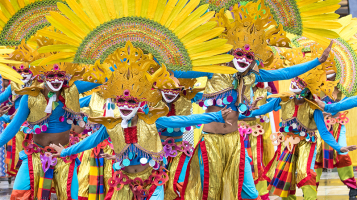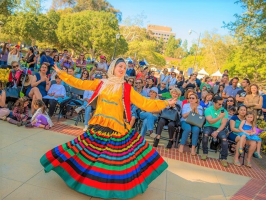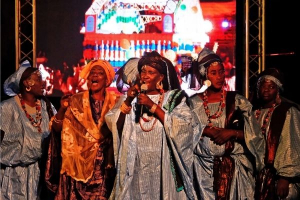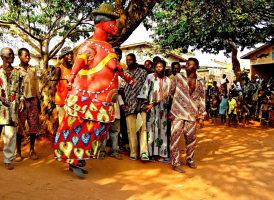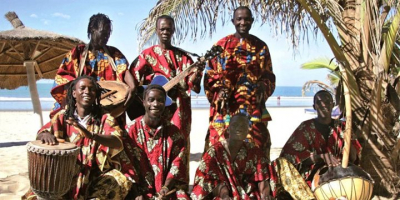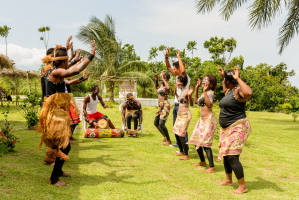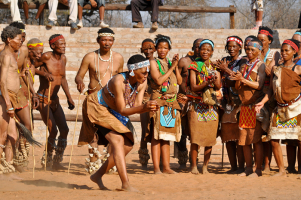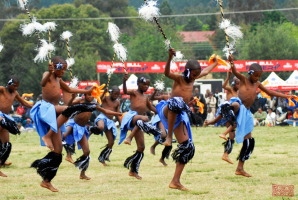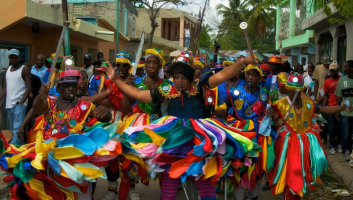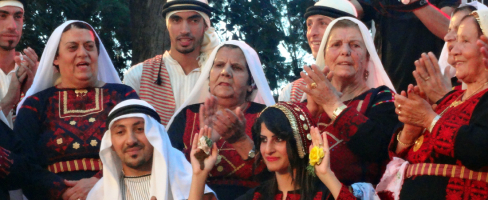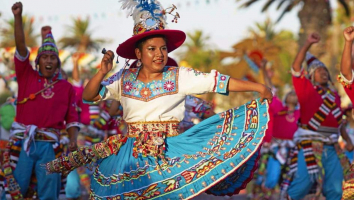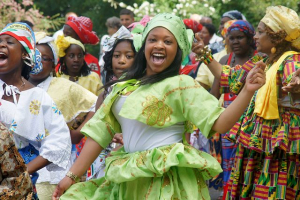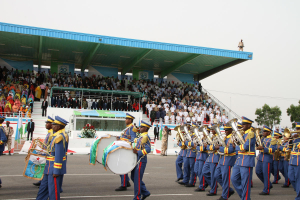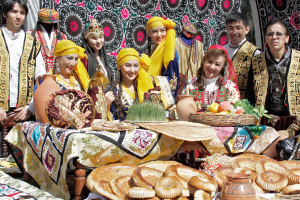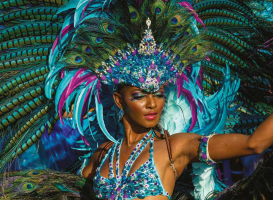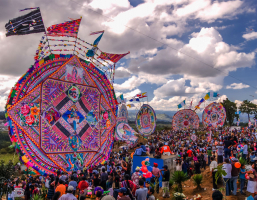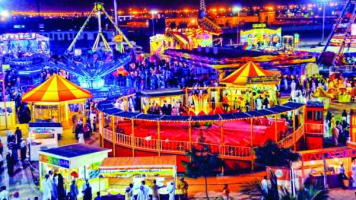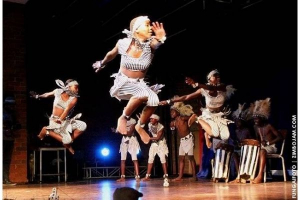Top 11 Most Famous Festivals in Russia
The best Russian festivals combine a colorful mix of music, film, theater, gastronomy, and snow festivals to celebrate Russia's rich culture, religion, and ... read more...history. Religious holidays such as Easter and Christmas, as well as historical and political events, are commemorated in traditional Russian festivals. Let's take a look at the most famous festivals in Russia now!
-
The Russian Orthodox Church (Christmas in Russia) is The birth of Jesus Christ, which is observed on December 25 in the Julian calendar used by the church, which falls on January 7 in the common Gregorian calendar.
Despite the Soviet Union's anti-religious policies erasing Christmas from the calendar for much of the twentieth century, many of its traditions have been moved to New Year's. Despite the fact that Christmas was reinstated as a holiday in the 1990s following the disintegration of the Soviet Union, Russian Orthodox Church is still overshadowed by New Year's Day, which remains the most important and famous festival in holiday.
Pork (roasted pig), stuffed pig's head, roasted meat chunks, jelly (kholodets), and aspic were among the traditional Christmas foods in old Russia. Many additional meats were served at Christmas dinner, including geese with apples, sour cream hare, venison, lamb, entire fish, and so on. The profusion of fried and baked meats, full baked chicken, and fish on the celebratory table was linked to characteristics of the Russian oven, which allowed for large-scale cooking.
Date: January 7th
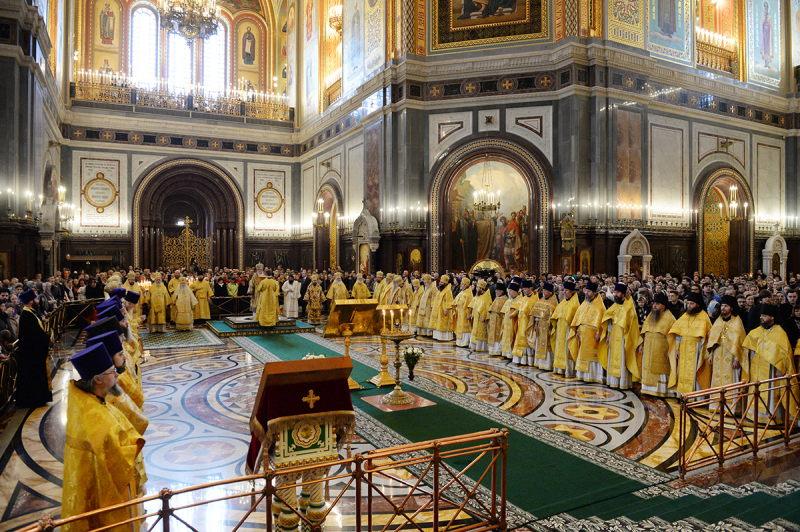
Source: Caspian News 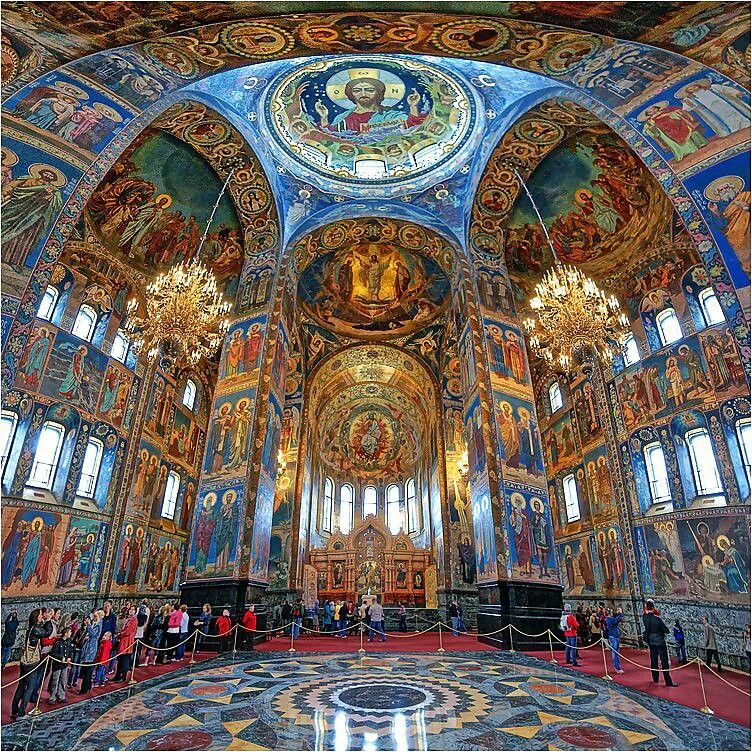
Source: Pinterest -
Tatyana's birthday coincides with Russian Students Day. St Tatyana became the patron saint of students when Elizabeth, Empress of Russia, signed a proclamation establishing Moscow State University on January 25, 1755, the feast day of the third-century Christian martyr St Tatyana. St Tatyana events are held in most university towns, with balls held and the best Tatyana chosen from among the students.
The day begins with a customary ceremony at the University's church, which is followed by speeches and prize presentations. Many students host or attend parties and public events later in the day. St. Tatiana's Day celebrations have spread throughout most university cities, despite their origins in Moscow.
Tatiana's Day also marks the end of the first term of the regular academic year for Russian and Ukrainian students, making the holiday a day to commemorate the completion of final exams.
Date: January 25th
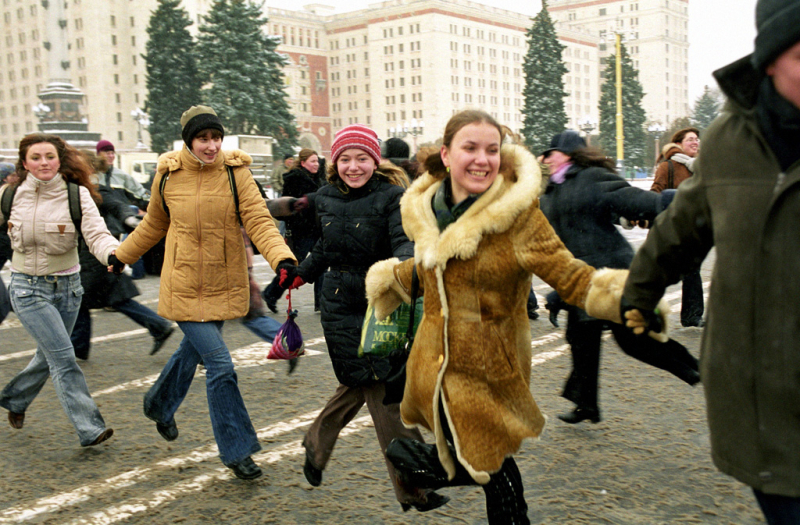
Source: Wikipedia Source: Learn Russian with RussianPod101.com -
Maslenitsa (Butter Lady, Butter Week) is an Eastern Slavic liturgical and folk event held during the last week before Great Lent, that is, the eighth week before Eastern Orthodox Pascha. It has kept a number of elements of Slavic mythology in its ritual.
Maslenitsa is celebrated on a different date each year, depending on the date of Easter. It is similar to the Western Christian Carnival, with the exception that Orthodox Lent begins on a Monday rather than a Wednesday, and the Orthodox Easter date might differ significantly from the Western Christian Easter date.
The Maslenitsa effigy, sleigh rides, and festivities are all classic aspects of the Maslenitsa holiday. Belarusians and Ukrainians make pierogi and syrniki, while Russians bake bliny and flatbread.
Cooking Maslenitsa dolls out of straw and old clothes, making and eating a lot of pancakes (blinis), sledding, playing on seesaws, singing, fistfights, visiting the in-laws, giving gifts, feasting, and drinking tea or vodka are only some of the activities. On the final day, the Maslenitsa dolls are burned, and people jump over bonfires. Maslenitsa is one of the most famous festivals in Russia.
Date: February
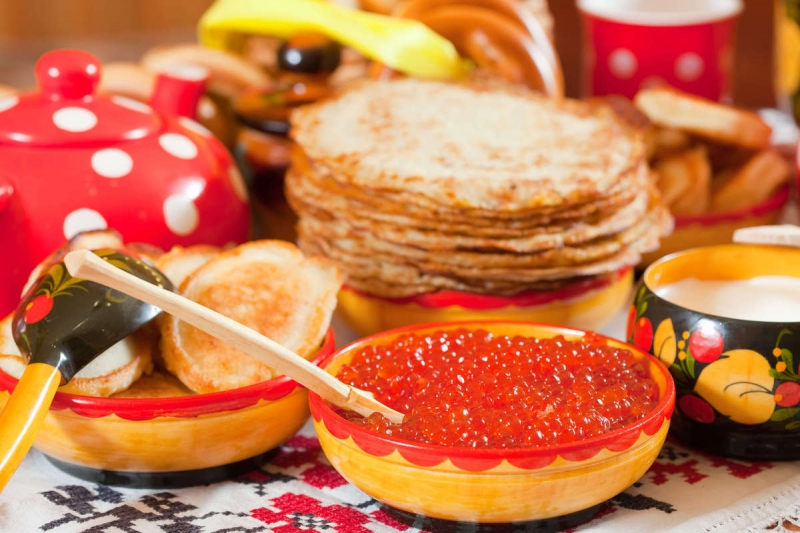
Source: Itmo.News 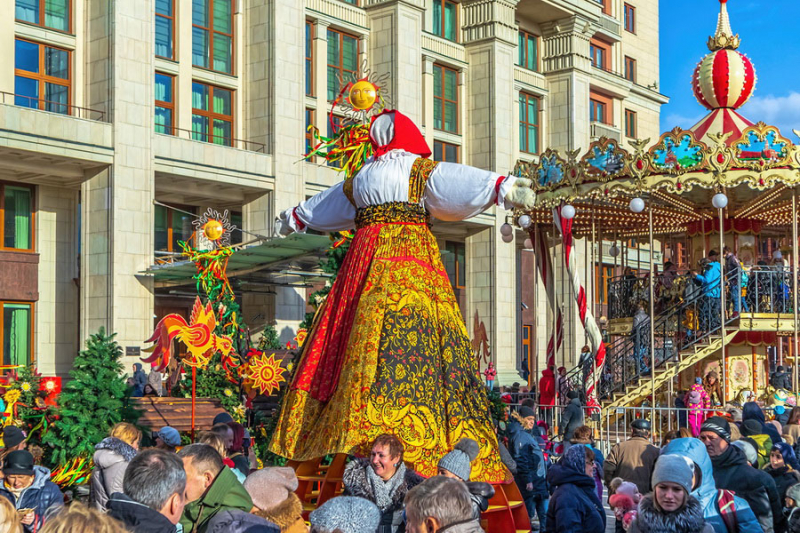
Source: Advantour -
The first Moscow International Film Festival (MIFF) took place in 1935, with world-renowned filmmaker Sergei Eisenstein chairing the jury (of Battleship Potemkin fame). In 1959, it became a regular fixture on the cultural calendar. More than 200 films from 50 nations are exhibited, with the finest picture taking home the Golden George Award. The 2019 MIFF took place from April 18 to April 25.
The statue of Saint George conquering the dragon, as seen on Moscow's Coat of Arms, is the festival's highest award. Since 2000, Nikita Mikhalkov has served as the festival's president.
Catherine Deneuve, a French actress, received this award in 2012. Hector Babenco, a Brazilian director, presided over the jury in 2012. The Jury included important filmmakers from several nations, including well-known French directors, Bulgarian directors, and Italian producers. Marina Razbezhkina, a filmmaker, presided over the "Perspectives" Jury. Kirill Razlogov is the MIFF's program director.
Date: April 18th to April 25th
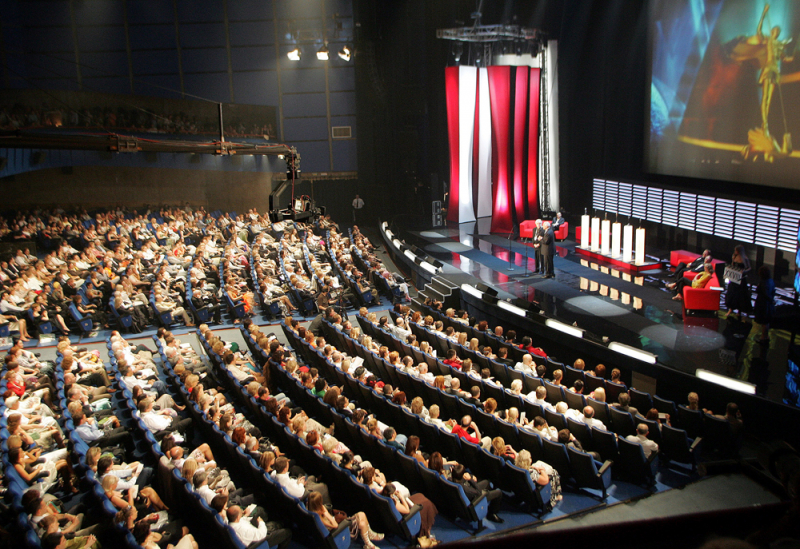
Source: Russia Beyond 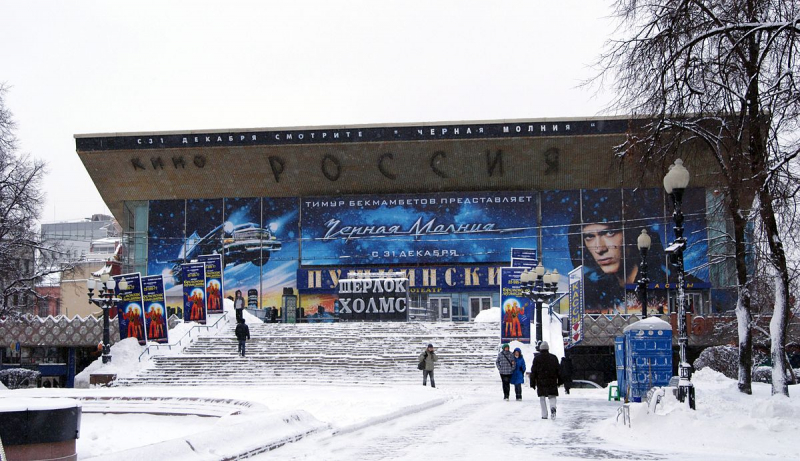
Source: Wikipedia -
The Golden Mask is a Russian theater festival and the National Theater Award, which the Theater Union of Russia established in 1994. Productions in all kinds of theater art, including drama, opera, ballet, operetta and musical theater, and puppet theater, are eligible for the award. In the spring of each year, it displays the most important performances and becomes one of the most famous festival from throughout Russia.
The Golden Mask is a cultural institution that performs a complex of vital strategic functions for the theater, as well as a famous and prestigious prize in the sphere of theater art. The Golden Mask's history is a record of current Russian theater, covering all of its key advances and trends.
Aside from the main (competition) program, the Festival hosts a variety of other noteworthy events and projects, with a particular emphasis on promoting Russian theater and presenting the best Russian productions in Russian towns and beyond.
Date: April 16th
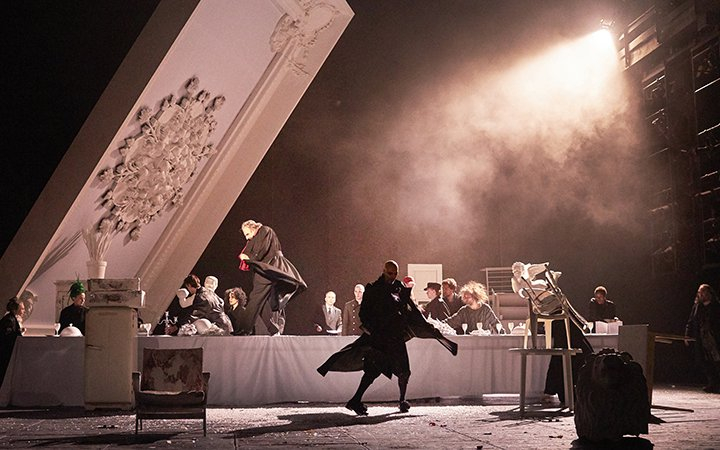
Source: Discover Moscow 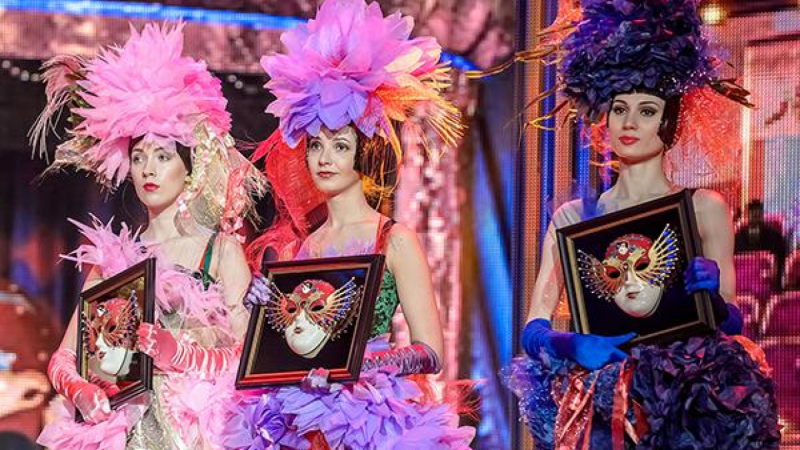
Source: The Moscow Times -
The White Nights Festival is an annual summer festival in Saint Petersburg that honors the city's near-midnight sun phenomenon, which occurs every year between April 21 and August 21 due to its proximity to the Arctic Circle; the skies only reach twilight and never reach complete darkness.
The "Stars of the White Nights" are a series of classical ballet, opera, and orchestral performances held at the Mariinsky Theatre and Mariinsky Concert Hall as part of St. Petersburg's White Nights Festival. Valery Gergiev is the festival's artistic director. There are practically daily evening concerts at the Mariinsky Concert Hall and daily evening performances at the Mariinsky Theater (either ballet or opera) during the festival (either classical concert or opera-in-concert).
During the White Nights Festival in St. Petersburg, a number of carnivals are held. The largest and most well-known carnival in the world takes place in the St. Petersburg district of Peterhof. Actors dressed in period costumes perform plays reenacting historical events from the time period. As part of the carnival, period carriages are rode around Peterhof park.
Date: April 21st to August 21st
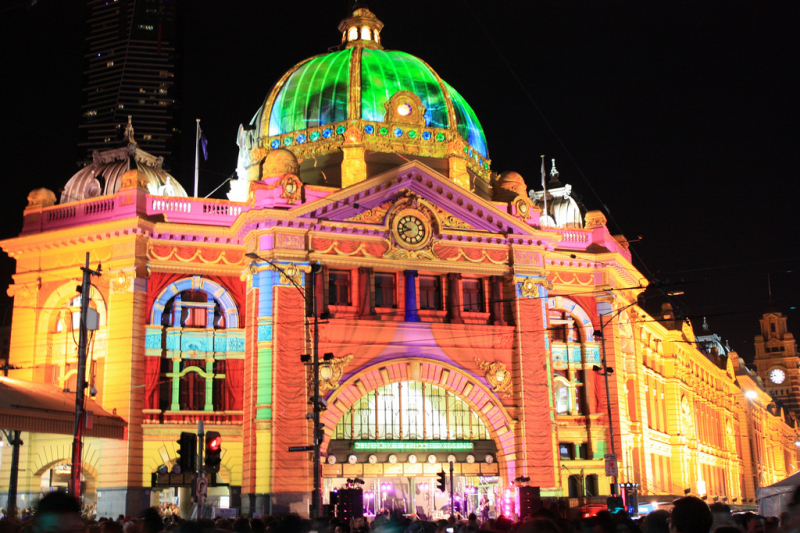
Source: iExplore 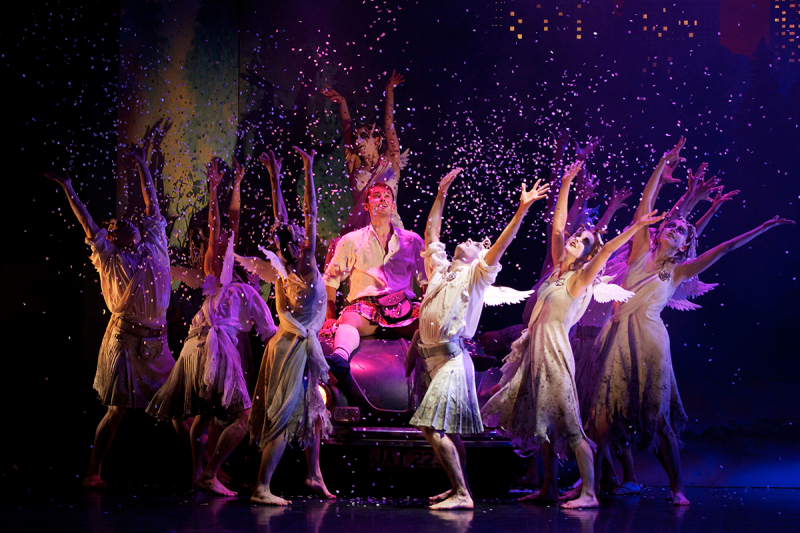
Source: MOST Petersburg -
The Scarlet Sails Festival, also known as "Alye Parusa" in Russian, is the most well-known public event during the White Nights. Spectacular fireworks and a large spectacle honoring the end of the school year make this event extremely famous: In St. Petersburg, there is a festival called "Scarlet Sails."
This custom began here after World War II, when schools banded together to commemorate the conclusion of the school year using the symbolism of Alexander Grin's popular children's novel "Scarlet Sails." A boat with red sails was going towards the Winter Palace along the English Embankment and the Admiralty Embankment at the time.
Despite its origins as a way to modernize old revolutionary propaganda, the Scarlet Sails tradition has grown into a famous public event, marking the conclusion of the school year in June every year. The emergence of the "Scarlet Sails" has become the most popular aspect of the White Nights event.
Date: June
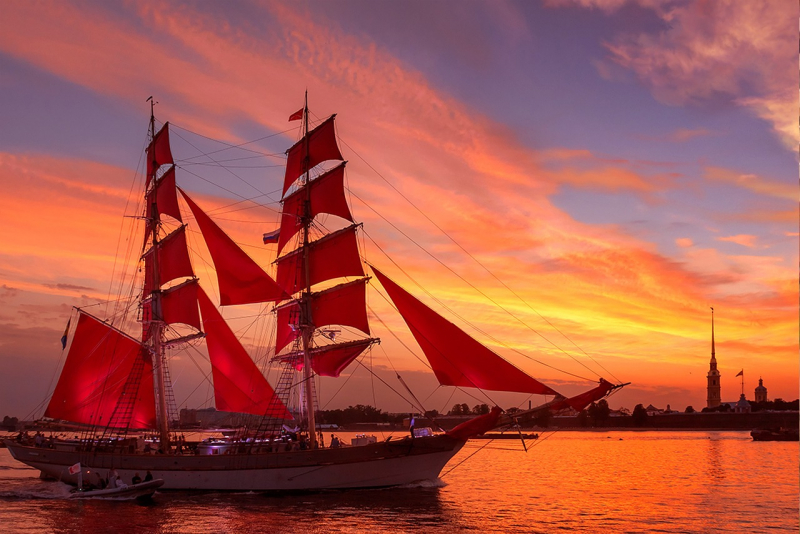
Source: Russiable Source: CGTN -
Every June at Luzhniki Stadium, Taste of Moscow is a four-day showcase of the city's finest and most notable new eateries. A number of Moscow's finest restaurants open their doors for three days of masterclasses and tasting sessions open to the entire family (typically with a dedicated entertainment zone and children's menu).
To create a Taste of Moscow atmosphere, there are additional zones for various types of food, drink, and music. Around 200 masterclasses are available, covering both Russian and international cuisines. Visitors can experience delectable meals produced by renowned chefs from Russia and Europe, as well as signature dishes prepared by local eateries.
A gourmet market with a wide choice of fresh and premium items, as well as intriguing cooking classes, are part of the event.
Date: June
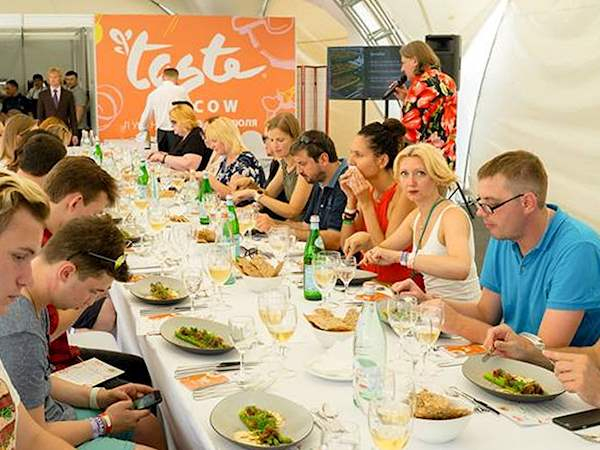
Source: TasteAtlas Source: Taste Moscow -
The Wild Mint Folk festival is Russia's largest international music festival, held every summer in the Kaluga region's cultural and ethnographic complex "Ethnomir." Guests will be delighted to hear diverse and dynamic music from around the world over the festival's three days, featuring Balkan melodies and Celtic rhythms, Latin American tunes, Russian melodies, sunny reggae, and African rap.
The Wild Mint Folk festival brings together some of the biggest names in world music. The event will be of interest not only to music fans, but also to anybody interested in foreign culture and traditions.
The festival also features a number of fairs. People may visit the world's largest handmade gift market and sample organic, eco-friendly food from all over the world, like red Chinese tea and homemade Serbian cheese, organic spices, nuts and dried fruit, and juice and honey made from northern taiga berries. This is why Wild Mint Folk festival becomes one of the famous festivals in Russia.
Date: June
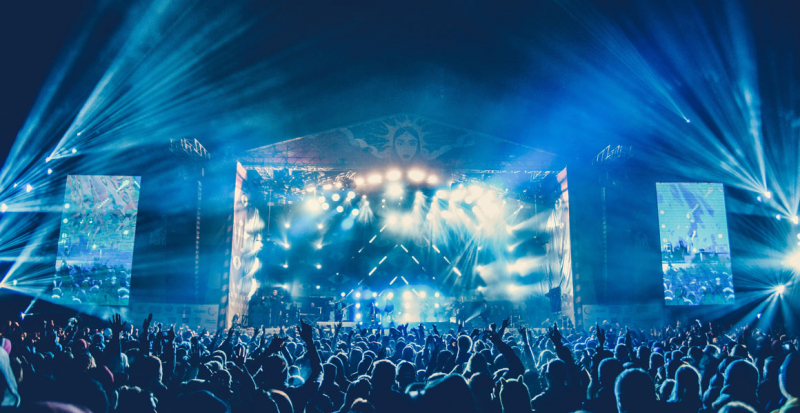
Source: Yourope.org 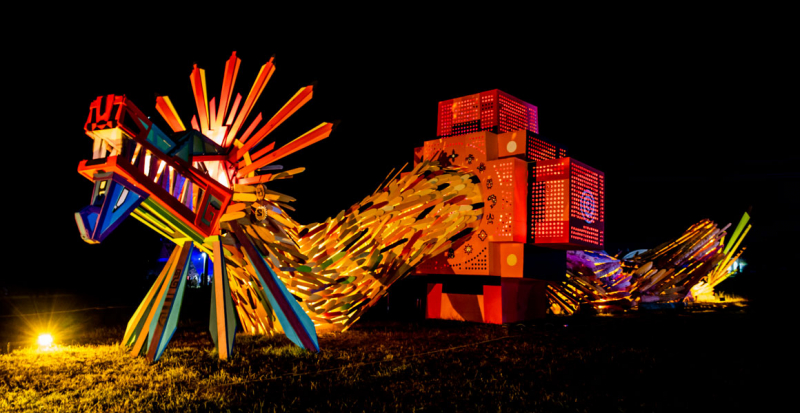
Source: Yourope.org -
Every summer, the Afisha Picnic is a one-day outdoor festival hosted in Moscow, Russia. It is held on the grounds of Kolomenskoye, a former tsar's estate that is now a state-owned historical, architectural, and nature reserve museum 10 kilometers south of the city center.
Since its inception in 2004, the Afisha Picnic has followed a concept that combines a professional music festival with performances by international artists and local independent musicians with an urban-style event featuring a designers' market, gastronomic area, games and crafts, sports and amusements, lectures and workshops, and, on one occasion, even a dance floor on the rollerdrome. A total of 50,000 people attend the festival.
Each year, the Afisha Picnic grows in popularity, bringing a larger audience from all across Russia as well as more media attention from both domestic and international sources. With a growing range of music and leisure activities, as well as the addition of English navigation in 2010, Afisha Picnic is bolstering its position in the international live music and festival business.
Date: June
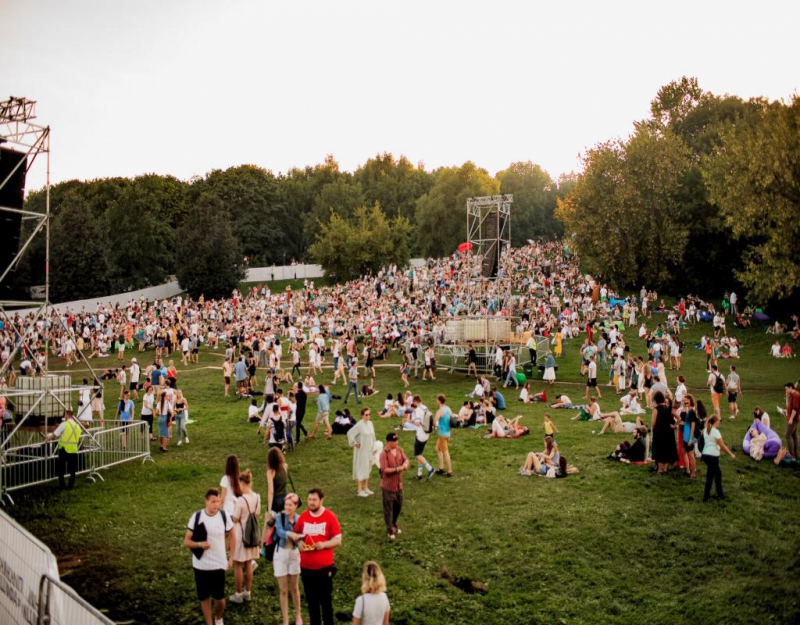
Source: Viberate 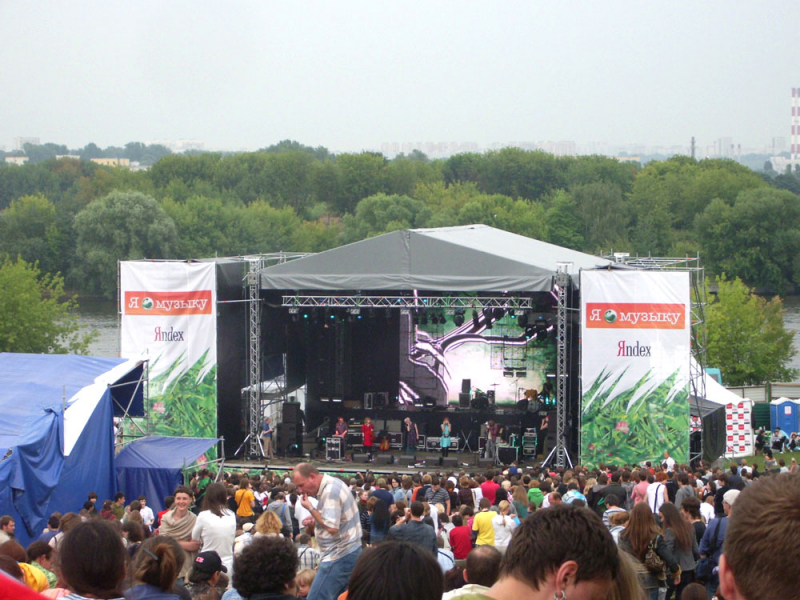
Source: Barco -
The Russian Winter Festival, which takes place in Moscow every year from mid-December to mid-January, features extravagant ice sculptures, entertainment, and festivities.
The Festival is a big cultural event that takes place every year, with greater zeal and larger events each year. Performances of traditional Russian music and dance, games, crafts, cuisine, and more can be found at Izmailovo Park and Revolution Square. Visitors to the Moscow winter festival will be able to sample Russian traditional winter dishes such as bagels, jam, and tea, as well as participate in a variety of local cultural events.
Some of the Russian Winter Festival's events harken back to Russian history yet are still relevant in today's culture. At the Moscow Winter Festival, sledding, with or without snow, is a popular pastime. Swings are also employed, which are copies of those used in 16th-century Russia.
Three horses linked to a sled replace the warm-weather horse and carriage in a troika ride, which may be one of the most exhilarating of the old-fashioned hobbies.
Date: Mid-December to Mid-January
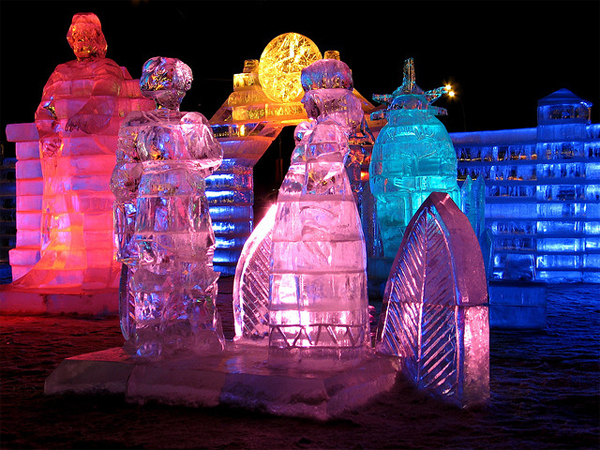
Source: Argophilia Travels News Source: Valeria Kovtunova













